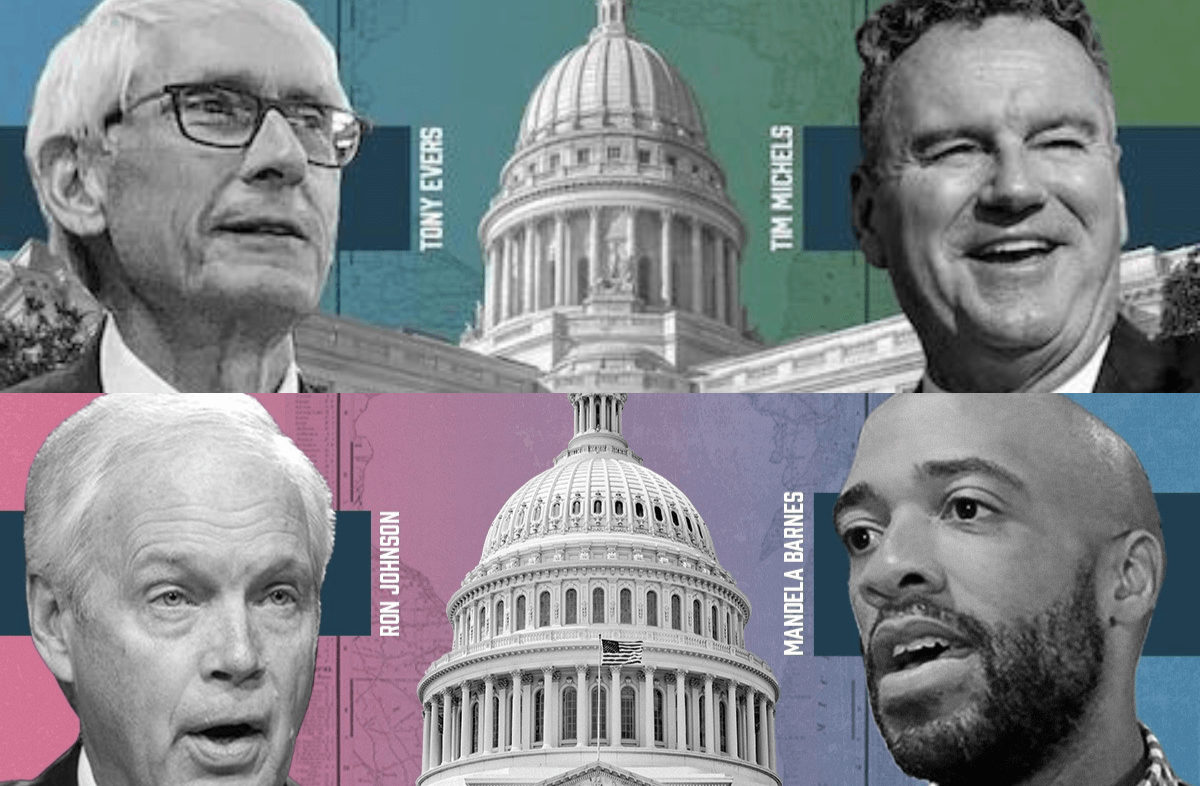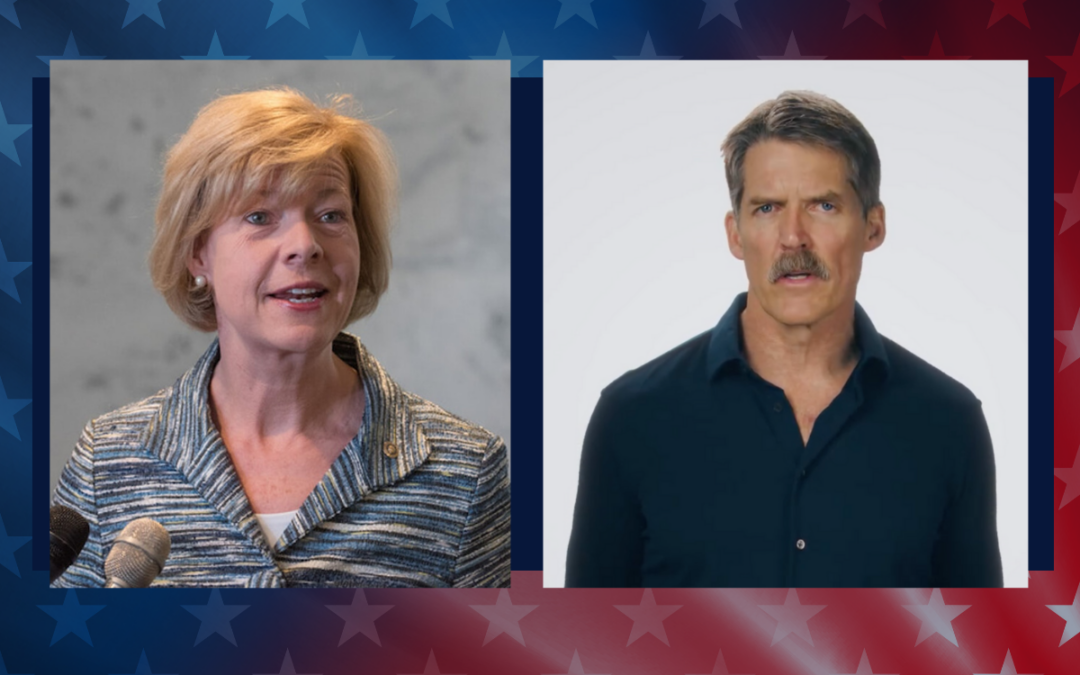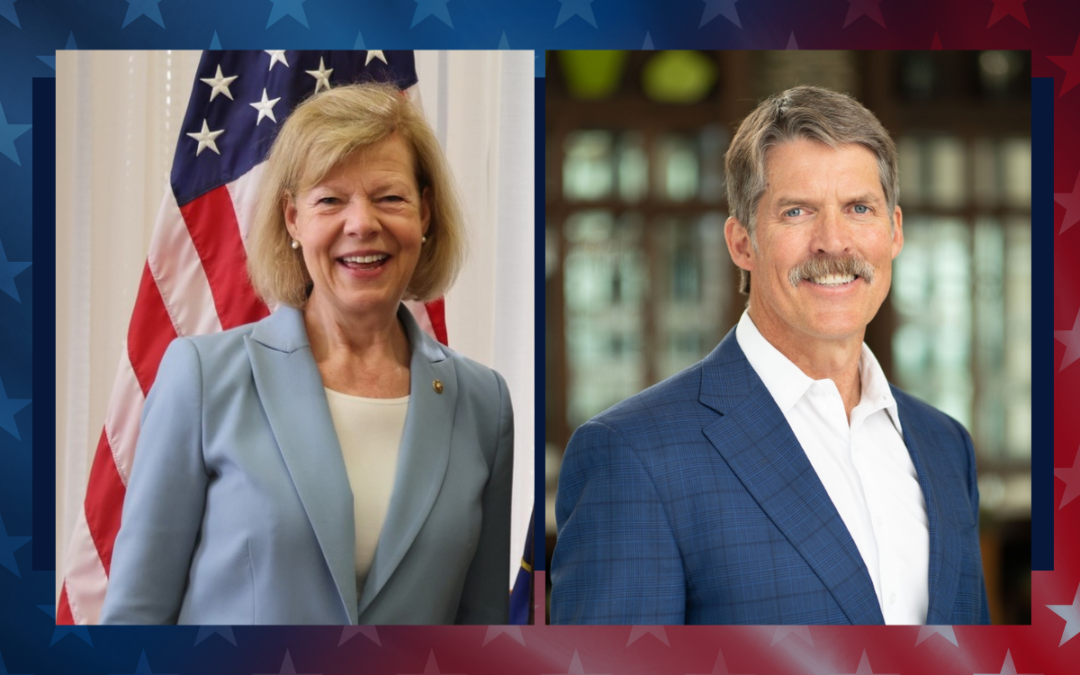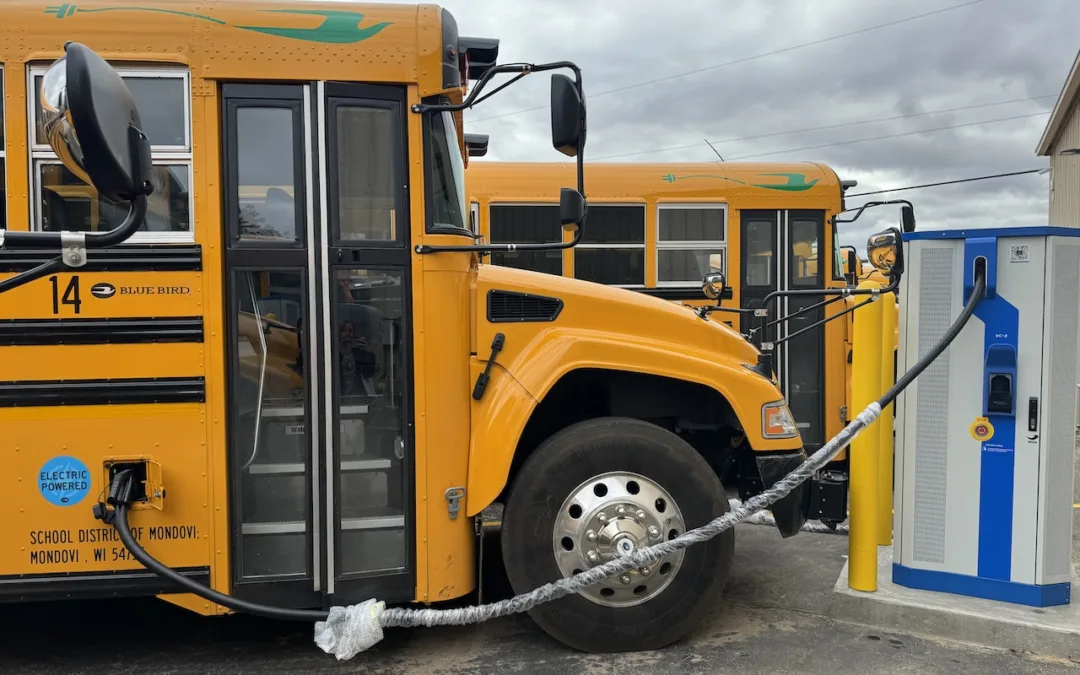
It’s been two days since the last mass shooting in the U.S., and there are 20 days until you vote for a candidate who will–or won’t–decide to protect you from gun violence. Here’s where Wisconsin candidates stand on gun safety laws.
The Governor’s Race
Gov. Tony Evers supports common sense gun safety measures that include a universal background check requirement for every gun purchased in the state, including guns bought at gun shows and online. Evers also supports “red flag” laws, which would temporarily remove guns from people who pose a danger to themselves or others.
In 2019, Evers called a special session to propose those commonsense gun laws, but the Republican-led legislature ended the session right as it began, immediately gaveling in and out.
Just this year, Evers vetoed three Republican-backed bills that would expand the right to carry concealed guns in Wisconsin. One of those bills would have allowed a concealed-carry weapon license holder to possess a loaded firearm on school grounds, while another would allow firearms in a place of worship that is located on the same grounds as a private school.
“This bill neither improves public safety nor addresses gun violence in our state by allowing for an increased presence of firearms–including loaded firearms–on school grounds,” Evers said.
Wisconsin’ gun-free school zone law passed with strong bipartisan support back in 1991 under Gov. Tommy Thompson. The law states that armed individuals cannot be within 1,000 feet of a school. Violating this law can result in felony charges.
Another bill would allow an out-of-state resident with authorization issued by any other state to carry a concealed weapon in Wisconsin.
Following the mass shooting in Uvalde, killing 19 children and two teachers, Gov. Evers urged Republicans to take action on commonsense gun laws.
“I will work with any Republican who wants to find common ground, who wants to make progress on gun safety, who wants to pass legislation a majority of Wisconsinites will support,” Evers said in a speech.
In contrast, Republican gubernatorial candidate Tim Michels believes 18 year olds have a Second Amendment right to possess semi-automatic rifles. In a July interview, Michels also said that he would not implement red flag laws, although this policy is supported by 81% of Wisconsinites, according to a Marquette University Law School Poll. Additionally, he doubled down on that during the gubernatorial debate last week, calling red flag laws a “slippery slope.”
“With millions of guns in Wisconsin, we need to make sure that the responsible gun owners are not going to be subject to having their guns taken away without due process,” he said, neglecting to acknowledge that red flag laws specifically provide for that due process.
Gov. Tony Evers’ stance on gun policy did not waver.
“Responsible gun owners don’t have to worry about red flag laws, because it will never be an issue for them,” he said.
US Senate Race
While in office, Lt. Gov. Mandela Barnes has supported gun reform, including passing legislation that prevents high school aged-children from legally purchasing AR-15’s, in addition to “extreme risk laws,” which would allow officers to intervene when someone shows warning signs of being a danger to themselves or others.
“Milwaukee. Buffalo. Orange County. 3 mass shootings this weekend. 198 mass shootings that have occurred this year,” he tweeted back in May. “I know the pain of losing someone to gun violence personally. How much more loss will it take for us to pass common sense gun reform?”
On June 23, in a 65-33 vote, the US Senate passed the Bipartisan Safer Communities Act, a significant gun safety bill that included money for school safety, mental health, state crisis intervention programs, and incentives for states to include juvenile records in the National Instant Criminal Background Check System, which would provide a more thorough background check for gun buyers between the ages of 18 and 21.
That bill also closed the “boyfriend loophole” in domestic violence law. Now anyone who is convicted of a domestic violence crime against someone they have a “continuing serious relationship of a romantic or intimate nature”–no longer just spouses and former spouses–cannot purchase a gun.
Sen. Ron Johnson voted against this bill.
“The Bipartisan Safer Communities Act is a classic example of Washington dysfunction,” Johnson said in a statement. “Negotiated by a ‘gang’ with no committee process.”
“It’s no surprise that Ron Johnson voted against advancing this bill,” said Barnes. “He’s been bought and paid for by the gun lobby many times over,” said Barnes in a statement following the passing of the Bipartisan Safer Communities Act.
An analysis by the Brady Center ranked Sen. Ron Johnson #15 on the list of senators who have benefited the most through the National Rifle Association’s political spending. Johnson has received a total of $1,269,486 from the NRA over his career.
Politics

What’s the difference between Eric Hovde and Sen. Tammy Baldwin on the issues?
The Democratic incumbent will point to specific accomplishments while the Republican challenger will outline general concerns he would address....

Who Is Tammy Baldwin?
Getting to know the contenders for this November’s US Senate election. [Editor’s Note: Part of a series that profiles the candidates and issues in...
Local News

Stop and smell these native Wisconsin flowers this Earth Day
Spring has sprung — and here in Wisconsin, the signs are everywhere! From warmer weather and longer days to birds returning to your backyard trees....

Your guide to the 2024 Blue Ox Music Festival in Eau Claire
Eau Claire and art go hand in hand. The city is home to a multitude of sculptures, murals, and music events — including several annual showcases,...



